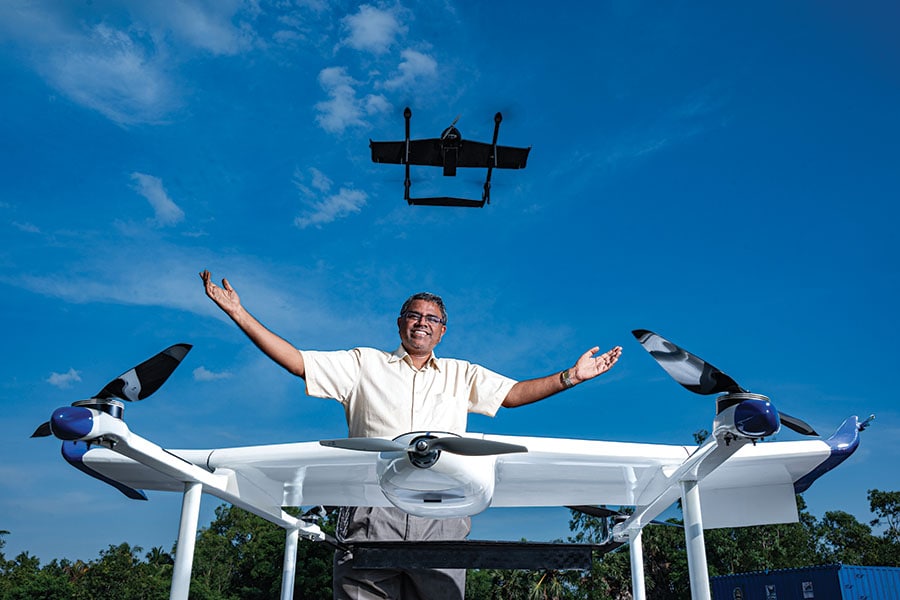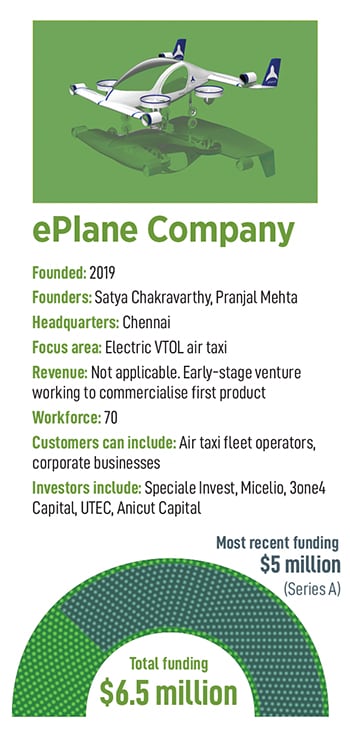
ePlane Company: Making air taxis a reality
The IIT-Madras-incubated venture is developing one of the world's most compact electric VTOL passenger air taxis
 Satya Chakravarthy, Founder of The ePlane Company, envisions hundreds of air taxis flying over our cities
Satya Chakravarthy, Founder of The ePlane Company, envisions hundreds of air taxis flying over our cities
Imagine skipping over all the traffic snarls of your metro to get to an important meeting on the other side of town, or a plant visit for an important customer—for a price not much more than what an Uber ride would cost for the same trip, but 10x faster.
That’s what Satya Chakravarthy wants to offer, with his vertical take off and landing (VTOL) all-electric air taxi, being developed at his venture, The ePlane Company. If he succeeds, it will be one of the first in the world.
Professor Satya, as everyone knows him at IIT-Madras, where he also built and heads the national centre for combustion research and development, started ePlane in 2019 with IIT Madras alumnus Pranjal Mehta, who left the company in 2022. In September, ePlane achieved an important milestone, securing a certification from India’s aviation regulator, the Directorate General of Civil Aviation.
This recognition, called the design organisation approval, now allows ePlane to go ahead and build its aircraft. “It means that when we build it, they will recognise it,” Chakravarthy says.










